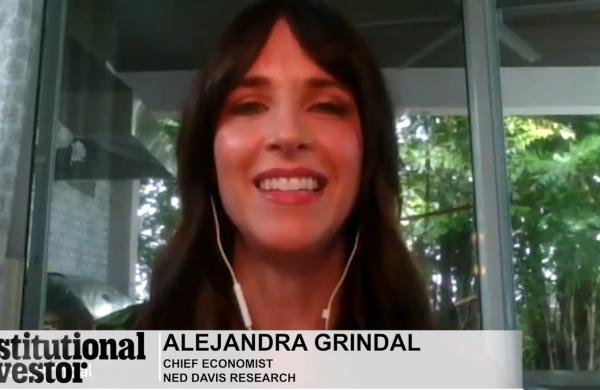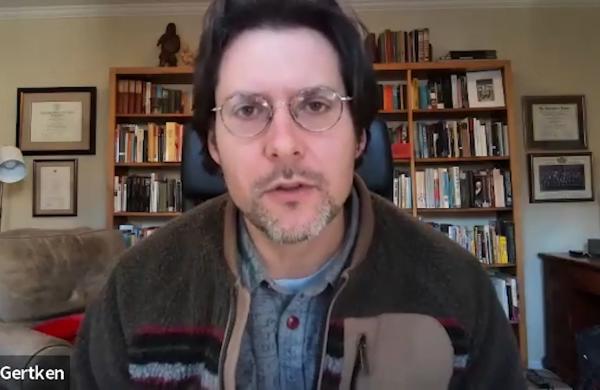Radio pioneer Guglielmo Marconi, who died in 1937, spent most of his 63 years helping to invent the telecommunications industry. Mike Parton has spent the past couple of years reinventing the London-based enterprise that bears Marconi's name.
Parton has literally created a new company: Marconi Corp., a telecom equipment and services supplier that is the latest incarnation of the inventor's 1897-vintage Wireless Telegraph & Signal Co. In the process of bringing the nearly bankrupt company back to the brink of profitability, he's encountered plenty of static.
A 13-year veteran of the company who has been CEO since September 2001, Parton has slashed annual expenses over the past two years -- from about £1 billion ($1.8 billion) to £435 million -- by reducing the workforce from 35,000 to 13,000 and by selling several noncore subsidiaries, including U.K. discount phone service Easynet Group and U.S. broadband equipment maker North American Access.
Parton has used £2.2 billion in total proceeds from asset sales to attack another huge problem: the £4.4 billion in debt that he inherited from his predecessor, Lord Simpson, who spent lavishly on acquisitions in an ill-advised expansion campaign during the technology boom.
Most egregiously, in 1999 Marconi paid $6.3 billion in cash -- 48 times combined profits -- for U.S. broadband equipment companies Fore Systems and Reltec. (The latter was split into two parts: North American Access, which was divested in February, and Outside Plant and Power, which Marconi has said it may sell because the company's business of supplying power to telecommunications networks is "nonstrategic.") Before he sold parts of the businesses as CEO, Parton was part of the team that oversaw those acquisitions.
Parton cleared away most of the debt early last year. Banks and other creditors forgave three fourths of it in return for 99.5 percent of the equity. Public shareholders were left with a pittance.
"We are sorry for Marconi's original shareholders, but they owned a company that basically went broke," says the soft-spoken but hard-nosed CEO. "They would have gotten zero if the debt-for-equity swap hadn't gone through."
The corporate entity that ran up the debt -- Marconi PLC -- was delisted from the London Stock Exchange on May 16, and the new Marconi Corp. was listed on the next business day, May 19. The old company's bonds had fallen below investment grade by mid-2001, attracting savvy institutional bottom-fishers who bought up the discounted debt and profited from the share swap. The new Marconi -- whose major shareholders included U.S. hedge fund Appaloosa Partners (10 percent) and U.S. private equity firm Cerberus Capital Management (7 percent) -- began trading on the exchange at £2.80. As of mid-March the stock was up to £6.60.
Parton, a 49-year-old native of Shropshire, England, and a chartered management accountant, expects to report a modest operating profit for the 2005 fiscal year, which begins this month -- a dramatic reversal from losses of £1.18 billion in 2003 and £6.1 billion in 2002. (Fiscal 2004 results are scheduled to be reported May 18.) He stands to be well rewarded, given that his 3.5 million-share option package is already 70 percent vested and worth £16.2 million. The package will fully vest if market capitalization holds to an average of £1.5 billion for 90 consecutive days before January 2006. As of late last month, Marconi's market cap was £1.3 billion.
Analysts say that although Parton has accomplished a great deal, his job isn't over by a long shot.
"The company has made admirable progress in its restructuring," says Eiji Aono, a telecom equipment analyst at Credit Suisse First Boston in London. "But it is still unclear if Marconi will be able to survive in its current form."
Some observers expect the company to tighten its focus by paring one or more of its four divisions: broadband access, broadband switches, optical transmission equipment and outsourced telecommunications maintenance. But others warn that Marconi may already have downsized itself too much to effectively compete against such giants as Alcatel, Cisco Systems, Lucent Technologies, Nortel Networks Corp. and Siemens.
Parton recently discussed the challenges of the smaller but no less ambitious Marconi with Institutional Investor Staff Writer David Lanchner.
Institutional Investor: What are your expectations for the next 12 months?
Parton: We think that as telecom operators increase the availability of broadband services, there will be a slight increase in demand for our products and services, but we don't expect any large increase in capital expenditures in the near to medium term. In any case, in the wake of our recent asset sales and cost-cutting, we expect to return to profitability this year, even with zero growth in revenues.
What are your most promising business lines?
Each of our four divisions is in a different phase of its life cycle, so it is hard to say that one is more promising than another. But in the short to medium term, broadband access is where a lot of telecom operator money is going. So even though it is a small business today, we see great growth prospects over the next couple of years. Our other businesses will generate significant revenues, and they are necessary to provide the kind of full service that clients look for when choosing equipment providers. But they don't offer the kind of double-digit sales growth that we see in broadband access.
Would you consider concentrating Marconi's firepower in just one or two core businesses?
No. We do not feel we are overstretched. We understand how the industry is evolving, and we have the people and the skills to play this game. I would like to highlight that through an extremely difficult restructuring period, and in a tough economy, we did not lose market share. That proves we have a viable and robust company in its present form and with its current spread of activities. We've brought costs down sufficiently so that even if the market deteriorates, we won't have to retreat to a more narrow range of businesses. We can pull in our belts further without seriously modifying our operations.
How can you keep up in research and development, where you spend less than your larger competitors?
Focus on the outputs, not the inputs. If you look at the products we have today and the amount of money we spent developing them compared with the amounts our competitors have dispensed on technology that's often less good, you'll see that we have a very efficient engineering organization.
Under what circumstances, if any, would you consider selling Marconi?
If selling the business offered more value to our shareholders than we could generate on a stand-alone basis, we would have to consider it. Having said that, all our plans are predicated on generating value for our shareholders by running the business independently over the long term.
Why are you still holding on to Outside Plant and Power, a U.S. broadband power supplier?
The success we've had selling Easynet and North American Access means that we have a wider range of options for OPP than an immediate sale. We are managing it for value, which means that we will be regularly comparing the value we can create from retaining the business to the value we can create from disposing of it. We will sell it only if and when it is appropriate.
Considering that Marconi shares trade at a discount to the sector, do you think that the terms of your options package are fair?
Yes. Last year's vote on the restructuring, including the options scheme, was supported by 99.8 percent of shareholders. The owners of the business felt that it was appropriate to tie a portion of that remuneration to paying down the company's debt. Another portion is dependent on hitting certain market-cap targets. So I would call the targets well balanced. Debt has been reduced to a manageable level, and the market cap has more than doubled since May. The fact that the reward for management is shares that we will receive gradually over the next two years aligns our interests perfectly with our shareholders'.
How much blame do you accept for Marconi's debt and related troubles?
All of us who were part of the management team have to accept some of the responsibility for what happened. You can't be part of management and just wash your hands of it. However, I was not a board member when the key strategic decisions were made, and it's difficult to say what my view might have been had I been on the board at the time.





